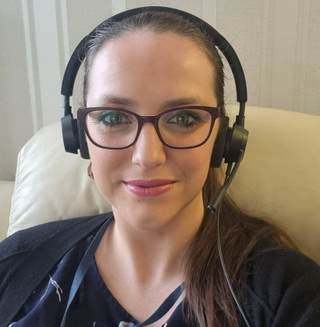"Look on the bright side!" This attitude has served me well, but often, it’s not a helpful thing to say. Becoming a mental health first aider has made me reevaluate the way I talk to others.


"Look on the bright side!" This attitude has served me well, but often, it’s not a helpful thing to say. Becoming a mental health first aider has made me reevaluate the way I talk to others.

I’ve always had a positive outlook on life – look on the bright side! This attitude has served me well, but often, it’s not a helpful thing to say. Becoming a mental health first aider has made me reevaluate the way I talk to others. Especially as a manager, I should notice when someone is reaching out to me and give them the support they deserve.
I want to build an open culture in our team where everyone feels they can speak freely and honestly about mental health. Personally, I can get very anxious, and I used to worry about what others would think of me because of this. Now I accept that it’s not something to be ashamed of. It’s completely normal, so it should be normalised.
My son’s autistic and people will say things like ‘I’m so sorry’ and I’ll think, there’s no need to apologise. I need someone to empathise and not be quick to judge. It’s similar when someone is mentally unwell – you don’t want people to say sorry, you want to be listened to and to be understood.
Having a network of mental health first aiders at G.Network is a fantastic initiative. It means that anyone can go to any manager for support, because my team may not necessarily want to confide in me. It also means that I can go to another mental health first aider for advice, or to share the burden, and we can learn from each other.
Mental health is one of the most important parts of being a manager, so I'm really looking forward to going on my mental health first aider training soon.

Mental health is one of the most important parts of being a manager. My role is about empowering people to be the best they can be and to keep team morale high. Work is a big part of our lives and feeling happy, valued, and appreciated is just as important in work as it is in other parts of our lives.
I’ve been at G.Network for three years now, having started in the newly formed Inbound Sales team. I’ve always felt the culture at G.Network values every person’s contribution, and I’ve been recognised for my work at every stage – from getting the Top Sales Agent of the Year awards, to being promoted and leading my own team. For me, this has a positive influence on mental health and is something I aim to replicate now that I’m a manager. For example, at the end of every day, we all get together and celebrate our successes. It’s something everyone looks forward to, especially when we’ve had a superb day of sales!
But of course, there are days when we don’t meet our targets, when things don’t go right, and that can be hard. I like to remind my team that not every day will be your day. If things still aren’t working out, I want them to feel we can work through it together.
Communication is crucial, and it’s a great thing that all our managers at G.Network are equipped to recognise and support the mental health of our teams and colleagues. I'm really looking forward to going on my mental health first aider training soon.
I believe that by promoting the benefits of mental health first aid, we can keep chipping away to break down the stigma.

I joined G.Network on the day of the first national lockdown and since then, there have been many challenges to growing and supporting my new team. What being a mental health first aider has taught me is how to approach these challenges and identify when someone might not be coping so well. I’ve been there myself, but at the time I didn’t have the tools to deal with it.
In 1992, I was in the aftermath of the London Bridge bombing and from that experience, I went to counselling sessions. Back then, I didn’t want to be that guy who went to counselling – I answered the questions and left as quickly as possible. Talking about your feelings was seen as a weakness. Often, it still is, particularly with men and people over a certain age. Now, I want to be part of making it OK to talk about your mental health.
Anything can impact someone’s mental health, and what doesn’t impact you might have a huge effect on someone else. For example, someone’s physical health can affect their mental health, and many of us are concerned by the news and the cost of living. As a manager, I try and keep these things in mind when I speak to my team, which I make sure is every day, either face-to-face or on our daily call.
At G.Network, the mental health first aiders meet up regularly and we all agree on the benefit that having so many of us has had. I believe that by promoting the benefits of mental health first aid, we can keep chipping away to break down the stigma.